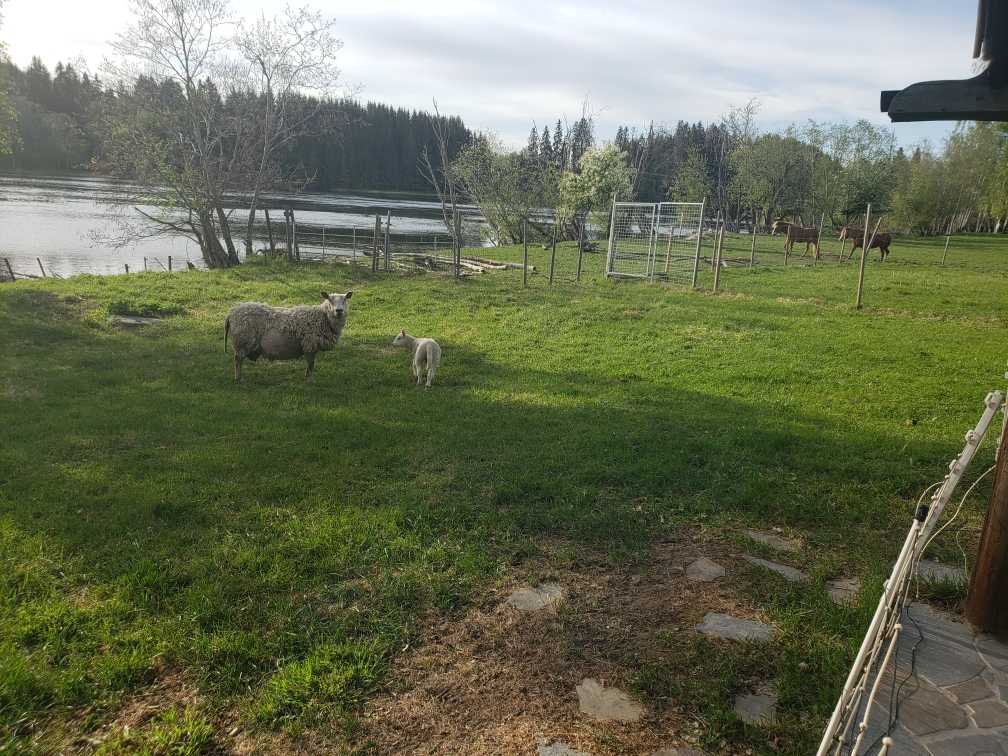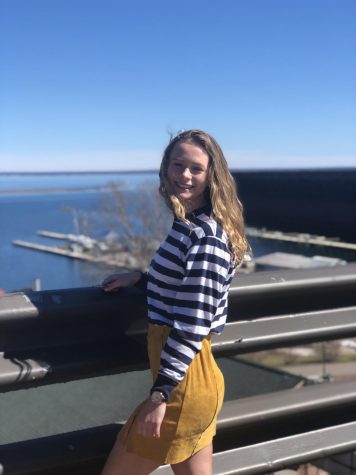A month-long scenic getaway to the luscious countryside of Norway with little to no cost shed on living accommodations sounds like a dream. However, sophomore Daisy Lupa was able to make it a reality this summer though the international program World Wide Opportunities on Organic Farms (WWOOF).
Lupa spent late May and early June on an organic sheep farm with another college student from Eastern Michigan University, a friend from her hometown. The two girls were seeking a cheap way to travel abroad over the summer while also looking to gain some volunteer experience. When they found WWOOF, they looked into the branch available in Norway because it was a relatively shorter flight and safe country.
“We were going there to learn about organic farming and to learn about the culture and that sort of stuff in Norway, to get some volunteer experience and figure out if this sort of thing was something we might want to do for more volunteering or as a career,” Lupa said.
Through the volunteering program, the girls looked for their own host to stay with and made contact with them. The host would provide them with room and board, which included their own cabin on the farm, meals and valuable experiences.
“I’ve been interested in gardening and farming from a pretty young age and as grew older and got more politically aware, I thought that organic farming was pretty cool and definitely something I wanted to learn more about and spread to my community if I can,” Lupa said.
During a typical day at the farm, the girls would let the sheep out into the pasture and feed the babies and sickly ones. Lupa said they did a lot of fence repairs while they were there. They also helped muck out stalls and gave the sheep vaccinations.
“Usually we didn’t have to wake up super early and we had breakfast by ourselves,” Lupa said. “We lived in this tiny cabin off in the pasture it was really adorable and then around mid-morning, we would go up and help out our host.”
Their host taught them how to train a type of horse that’s native to the area and becoming endangered. Then every day after dinner they would take the sheep back into the barn.
“We came in with zero skills besides being able to move heavy objects, then she taught us everything we needed to know,” Lupa said.
Later into summer, the farmers in the area would let the sheep out into the woods around the pastures.
“The feed that they had was certified organic and then also they did other holistic practices like sending them out into the forest, letting them graze and keeping the babies with the parents for a long time,” Lupa said.
After spending a month on the farm, Lupa and her friend set aside a week to travel around Norway. They weren’t sure where they should go so they waited until they could ask the locals.
“We figured out where else to travel once we were on the farm because then we were talking to Norwegians and looking at the guide book,” Lupa said. “So we sort of planned that while we were on the farm and we just left those days free.”
The farm was located a little outside of Oslo, Norway in a village called Vormsund.
“We went to Voss and we did white water rafting there and then we went to Flåm and there we did kayaking on the fjords,” Lupa said. “Then we went and did some hiking on a glacier, we went to Trondheim and did some sightseeing there, it’s a bigger city in the north.
Lupa and her friend were able to take trains from Oslo to Voss, take buses to everywhere in between and then take a train back to Oslo from Trondheim.
“We were there for more than a month and we didn’t have to pay for our room or board because we were working. When we were traveling around the week after we noticed that those expenses were really racking up,” Lupa said. “We spent about as much money in the month we were on the farm as we did the week afterwards.”
An easy way to cut costs when traveling abroad is to volunteer. Different organizations are often looking for help around the world, it may just take some digging to find them.
“I definitely want to go abroad more, I’d definitely do WWOOF-ing again if I got the opportunity to, I’m not sure about this next summer but maybe the summer after that,” Lupa said.
Traveling internationally doesn’t always go off without a hitch. Lupa ran into some issues with language barriers and offers some advice to those looking to travel.
“If I had to recommend something to somebody who was going to do this, I would say make sure you express your needs as clearly as possible to your host and don’t worry about trying to be polite or anything like that,” Lupa said. “Especially if it’s in a place that doesn’t speak English because they totally get it, they understand.”


























